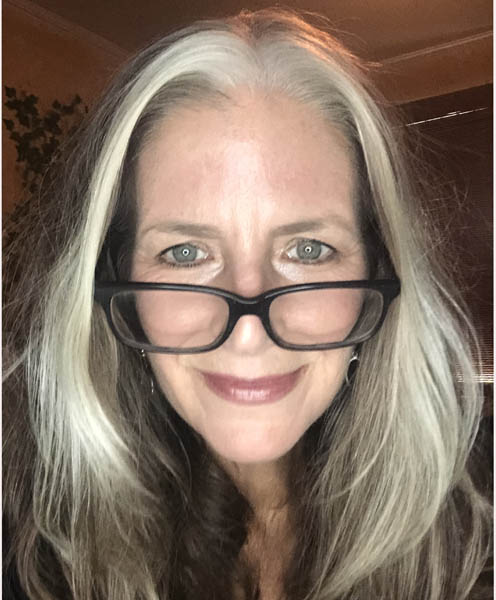Recently, I was scrolling through social media – shocking, I know – and I realized a weird kind of mental numbness had set in. Actually, it was too boring to qualify as weird. It was just numbness.
My mind was just . . . blank. People were chattering away, saying the same ol’ predictable things in the same ol’ predictable ways about the news of the day that just felt . . . same ol’ and predictable.
Andrew Cuomo steps down. (Meh.) Covid cases zoom up. (Yup.) January 6th something-or-other. (Uh huh.) Anti-vaxxers suck. (So I’ve heard.) Mask mandates suck. (So you’ve said.) Trump is the devil. (Blah blah blah.) Biden’s senile. (Yada yada yada.)
The culture wars were raging around me – as they do every day – and I just didn’t care. It all felt so tiresome and trite. On one side, there was a rock. On the other side, a hard place. Neither would budge. Narrative and counternarrative, clashing away. Talking points whizzing by. People expressing their wildly different realities in language increasingly intelligible only to their own.
Just another day in the neighborhood.
Normally, this frustrating dynamic triggers me into the trenches – wielding nothing but my natural curiosity, my obsession with bridge-building, and the handy-dandy phrase “then again” – but on this particular day, I couldn’t work up a single damn to give. Something inside me had shut down.
And that’s when it hit me: This culture war correspondent is tired. Flat out knackered.
I’ve been at this for a long time, y’all. This trying-to-understand-and-explain-where-everybody’s-coming-from business. It always seemed like a deeply important pursuit. A calling. I thought I was good at it, too, and it always feels good to be good at something.
But more often than not, these days, it just feels futile. And really exhausting. The “understanding” part is easy for me. Always has been. The “explaining” part? Once it was challenging, exciting; now it feels like bailing water from a sinking ship with a tiny tin cup. In a hurricane.
Ever heard that admonition, “Don’t be so open-minded that your brains fall out”? I have. Many times. Ironically, those who accuse me of that tendency have no idea how much they’ve benefitted from it over the years. Again and again I’ve defended them against insult and slander, because I’m compelled to. Because I genuinely understand them – their values, their motivations, even their personality types. I get them. I am them. In the interest of truth and justice, I have to defend them.
But I could say the same about their enemies.
In case I’m being too cryptic . . . This “too open-minded” insult is one I typically hear from my friends on the right. From friends on the left, I usually get, “How do you put up with those people?”
(Translation: “Don’t be so open-hearted that you let the bad guys in.”)
You know what? A pox on both your houses! You lovers of “reason” who can be so unreasonable, who fancy yourselves “free thinkers,” but all sound increasingly alike, repeating the same stale tropes, day in and day out? And you champions of “compassion,” defenders of “equality,” who treat large swaths of Americans as if they were something on the bottom of your shoe? Get over yourselves already.
Was that too harsh? Hey, at least I’m not feeling numb anymore.
Last week, into this foul, fed-up mood of mine, came a good-hearted request from a professor at USCB, who invited me to speak to his freshman honors class about – wait for it – Media Literacy. Hahahaha! He has no idea what he’s unleashing upon those young innocents.
All kidding aside, though, I intend to rise to the occasion. I got past the mental numbness, and I will kick this crankiness, too.
In fact, I’m already starting to access my better angels with help from the folks at Braver Angels.
Do you know Braver Angels? It’s a non-profit citizens’ organization dedicated to the Sisyphean task of depolarizing American politics. They’ve been sending me email for several years now – I must have signed up or “joined” at some point – but, though their mission is right up my alley, I very rarely engage. Something about the organization always seemed a bit too . . . earnest?
(Earnestness is a quality I very much admire, but only in small doses. Blame my mother. She raised us sarcastic.)
And much like the CDC always seems to be lagging a few weeks behind the latest COVID science, Braver Angels has felt a bit slow on the uptake to me. For instance, a couple of weeks ago, they hosted a big debate entitled something like: Is The Media Partly Responsible for Our Polarization Problem?
Duh. The only part of that question that seemed debatable to me was the word “partly.”
But I digress. Last week, in an effort to shake the numb-cranky, I actually watched one of their online discussions – a follow-up to the media debate – and I found it refreshing. Inspiring even. In person, the Braver Angels are much less earnest and much more fun than they are in print. I regret that I didn’t avail myself of their resources sooner.
In this video conversation, there were two conservatives (“reds”) and two liberals (“blues”) – all young, probably in their 30s – and each started by discussing what they like about the media on their “side.”
It was established right up front – and all four agreed – that mainstream media mostly reflects the “liberal” perspective, while “conservative” media arose in response to that fact.
Speaking for the “blues” were Monica and Ciaran, who agreed the best thing about their side (mainstream media) is that it still maintains high journalistic standards – lots of editors and fact checkers – and that it’s commited to minimizing harm. “The blue side is constantly thinking about care and harm,” said Monica, saying outlets like the New York Times work hard to avoid pandering to lurid curiosity, while still addressing the public’s need for information.
The worst thing about mainstream media, they acknowledged, is that it’s so condescending to conservatives. They also said that while mainstream media puts a premium on racial and sexual diversity, there isn’t enough diversity in terms of ideology, the stories they cover, or who they select to publish on the opinion pages.
Next up were the “reds,” April and John. They agreed that the best thing about conservative media is its skeptical approach. “Conservatives always feel like they’re on the outside looking in,” said April, so they recognize that much of mainstream media today is more about advocacy than actual journalism. In other words, conservative media is good for holding mainstream media’s feet to the fire. The “blues” agreed.
Then the “reds” criticized their own media for being too often “a gateway to misinformation,” “suggestive and demonizing,” and too susceptible to the money-grubbing “if it bleeds, it leads” ethos. Again, the “blues” agreed.
No earth-shattering insights here. But it was encouraging to see these young Americans of different backgrounds and political persuasions – friends and coworkers who clearly like and respect each other – engaged in such a thoughtful and generous conversation. All in hopes of healing our broken country.
This is how it’s done, people. Maybe you didn’t need reminding, but I sure did.
For more information about Braver Angels, visit www.braverangels.org







